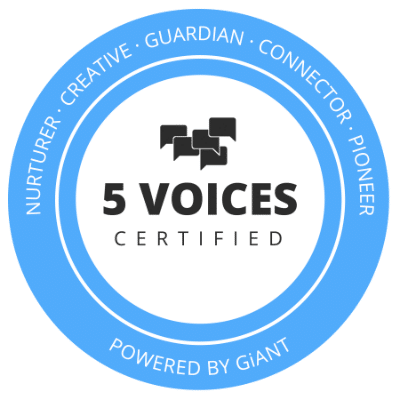If you have the right heart motivation as a leader, then you will be looking for ways you can become more effective. How many times have you found yourself in situations where you wonder how it is that you got there? It could be a conversation with a colleague that turns out badly, or being misunderstood in a team meeting. It could be reaching the end of the day and trying to understand why it is you haven’t managed to get the things done you wanted to.

It can seem like all of these things just happen. In other words, this is just how it panned out. If you are going to be effective in your leadership you must change your mind on this.
“Until you make the unconscious conscious, it will direct your life and you will call it fate.” Carl Jung
Think about what Carl Jung is saying. Your unconscious mind is playing a bigger part in your decision making than you give it credit for. Your unconscious mind is running on auto and is processing at much higher speeds than your conscious mind. Dr Joe Dispenza suggests in his studies that your conscious mind is processing at 2,000 bits per second, which seems ok until you understand that your unconscious mind is processing at 400 billion bits per second! This is a huge difference and it helps explain why we think things are down to fate instead of the decision making that is going on behind the scenes.
This is why in order to be more effective as a leader and therefore increase your influence, you have to learn how to make the invisible visible. After all you can only change what you can see.
This is the key – when you are able to see what is happening you can work out how in your leadership you are unconsciously undermining your influence. To lead well you must have influence and the people you lead must be willing to follow you, which means you have built up a contract of trust between you. Unconsciously every day you can do things which undermine that trust and erode your influence.
Two Actions you can take to Increase Your Influence
1. Take a personality assessment. There are many great ones out there and some will be better for you than others. When you take such assessments, it is about giving you a clearer understanding of how you are wired. It shows you what onboard preferences or tendencies you have, many of which you are unaware of and yet have tremendous impact on your decision-making, thinking and way that you view the world. When you have a clearer understanding of your wiring you can change your actions to change your reality.
2. Get yourself a coach. This was something I did several years ago and was so impacted by that I have trained up to become a coach myself. Coaches help you to see past the conscious processes you are aware of, helping you to grow in your self-awareness and discover the things that make you tick such as where you get your energy from and how you can think differently about the challenges and opportunities that come your way.
You owe it to those that you lead to take the time to understand your way of doing things. It is a lifelong process and yet every journey begins with the first step.
If you are fed up with the reality of some of the situations you find yourself in, it could be that all you need to do is make the invisible visible and change things for a different outcome. Remember…
“Insanity is doing the same thing over and over and expecting different results.” Albert Einstein
To take action on this get in touch with me on mark@smartculture.uk to discover your personality and learn how coaching can unlock your potential as a leader.





